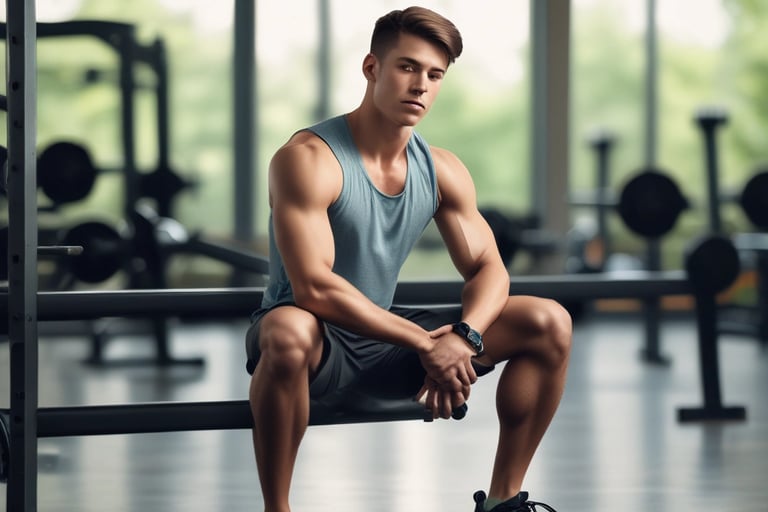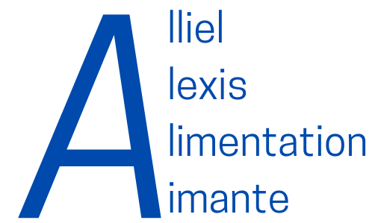Sports Nutrition in Paris: Fueling Performance Without Obsession
Beyond the Fitness Food Myths
As an expat athlete in Paris, you're navigating unique challenges: finding your training rhythm in a new city, adapting to French food culture while maintaining performance, and perhaps struggling to source familiar sports nutrition products. The Parisian approach to exercise - more moderate and lifestyle-focused than the intensive fitness culture of many anglophone countries - might leave you feeling isolated in your athletic pursuits.
The sports nutrition world is flooded with contradictory information, miracle supplements, and rigid rules that too often transform athletic passion into food obsession. Whether you're a weekend warrior discovering Parisian running routes, a CrossFit enthusiast, a dedicated yogi, or a competitive athlete, you've likely been bombarded with advice about protein timing, carb cycling, anabolic windows, and "essential" supplements.
In my consultations across Paris 6th, 20th, and Le Raincy, I help international athletes of all levels develop nutrition strategies that support their goals without sacrificing mental wellbeing or social life. My evidence-based, flexible approach demystifies sports nutrition, making it effective, practical, and compatible with enjoying life in Paris.
Understanding Real Athletic Nutrition Needs
The Physiological Fundamentals
Before discussing supplements and precise timing, let's address often-neglected basics:
Energy adequacy first: Your primary need as an athlete is meeting energy demands. Under-fueling, whether intentional or accidental, is the leading cause of poor performance, injuries, and overtraining. Many athletes, especially in endurance or aesthetic sports, are chronically under-fueled.
Hydration: The forgotten foundation: Just 2% dehydration decreases performance by 10-20%. Water isn't just liquid - it's the medium for all metabolic reactions, nutrient transport, and temperature regulation.
Sleep and recovery: The best nutrition can't compensate for insufficient sleep. Training adaptations, hormone regulation, and tissue repair happen during rest, not during workouts.
Consistency over perfection: What you do 80% of the time matters more than the 20% of special occasions. Overall balanced nutrition with some "imperfections" beats obsessive perfection that creates stress and restriction.
Navigating French Sports Culture
Different training culture: French gym culture is less intense than many anglophone countries. Finding serious training partners or understanding local gym etiquette can be challenging.
Product availability: Your familiar protein powders and supplements might be unavailable or expensive. Learning French brands and alternatives is essential.
Social sport tradition: French sports clubs emphasize social aspects. Post-training aperitifs might not align with your recovery nutrition plans, requiring diplomatic navigation.
Demystifying Sports Nutrition Myths
The Protein Obsession Myth
Fitness culture has created a generation convinced they need astronomical protein amounts.
Scientific reality: Athletic protein needs range from 1.2-2g/kg body weight depending on activity. Beyond this, there's no additional benefit and potential negatives (kidney stress, dietary imbalance, financial cost).
Variety over quantity: Diverse protein sources - animal, plant, combined - ensure complete amino acid profiles and associated micronutrients.
Flexible timing: The famous 30-minute post-workout "anabolic window" is largely exaggerated. You have several hours to optimize recovery.
The Supplement Necessity Myth
The sports supplement industry generates billions by creating artificial needs.
Actually useful supplements (sometimes):
Vitamin D in winter or low sun exposure
Iron if deficient (common in female athletes)
B12 for vegans
Creatine for strength sports (modest but proven effect)
Caffeine for performance (but watch dependence)
Usually unnecessary supplements: BCAAs (if adequate protein), glutamine, most "fat burners," natural testosterone boosters, alkalinizers...
Food first: Varied, adequate nutrition covers nearly all needs. Supplements never compensate for poor diet.
The Carbohydrate Enemy Myth
"Carbophobia" affects sports communities, especially fitness.
Carbs as primary fuel: For intense efforts and endurance sports, carbohydrates remain the most efficient energy source. Limited glycogen stores require regular replenishment.
Metabolic flexibility: Rather than eliminating carbs, train your body to efficiently use both carbs AND fats as needed.
Smart timing: Modulate carbs based on training (more around intense sessions, less on rest days) rather than elimination.
Personalized Approach by Sport Type
Endurance Sports: Energy Balance
For runners, cyclists, swimmers, triathletes navigating Paris:
Specific challenges: High energy needs, exercise-induced GI issues, hydration management, RED-S (Relative Energy Deficiency in Sport) prevention.
My strategies:
Ensuring adequate daily energy intake
Personalizing during-exercise nutrition (testing in training)
Optimizing glycogen stores without overloading
Preventing deficiencies (iron, vitamin D, calcium)
Maintaining healthy relationship with weight/body composition
Paris-specific tips:
Using beautiful running routes (Bois de Boulogne, Seine banks)
Finding training groups through Strava/Meetup
Adapting to French race nutrition (different products at aid stations)
Strength Sports: Building Without Obsession
For weight training, powerlifting, CrossFit:
Specific challenges: Pressure for bulking or cutting, extreme diet temptation, orthorexia risk, excessive supplementation.
My strategies:
Calculating real protein needs (not myths)
Creating slight caloric surplus for muscle building
Managing "cutting" phases without compromising health
Education on useful vs marketing supplements
Preserving social and dietary flexibility
Paris gym navigation:
Understanding French gym culture (less aggressive, more moderate)
Finding serious training facilities (recommendations provided)
Sourcing quality protein sources from French markets
Team and Intermittent Sports: Adaptability
For football, rugby, basketball, tennis in Paris leagues:
Specific challenges: Variable unpredictable efforts, irregular match schedules, frequent travel, team meals.
My strategies:
Creating solid, flexible nutritional base
Quick adaptation to schedule changes
Managing travel and restaurants
Optimizing between-match recovery
Integrating social dimension of team eating
Balancing Performance, Health, and Enjoyment
Preventing Obsessive Patterns
Sport can unfortunately become a gateway to eating disorders:
Warning signals:
Increasing food anxiety
Avoiding social events to control food
Intense guilt after "cheating"
Compensatory exercise after eating "too much"
Lost menstruation in women
Chronic fatigue despite rest
My preventive approach:
Valuing performance AND wellbeing
Maintaining dietary flexibility
Cultivating identity beyond sport
Supporting transitions (injury, career end)
Referring for psychological support when needed
Integrating Sports Nutrition into Real Life
Managing constraints:
Family meals that don't match "perfect timing"
Restaurant outings with non-athletic friends
International travel and competitions
Limited food budget
Lack of preparation time
Pragmatic solutions:
Athlete-adapted batch cooking
Smart fast food options
Practical, nutritious snacks
Family recipe adaptations
Communication with loved ones about needs
Paris-Specific Athletic Nutrition
Shopping strategies:
Best markets for quality proteins (Marché des Enfants Rouges)
Affordable organic stores (Biocoop, Naturalia)
Sports nutrition shops (recommendations by arrondissement)
Online options for specific products
Pre/Post Training Options:
Healthy café choices near gyms
Quick recovery meals from French bakeries
Portable snacks for Parisian commutes
Hydration strategies for city training
Sports nutrition should never become a golden cage separating you from life's pleasures. In my Paris consultations, I help you find YOUR unique balance between athletic goals and overall fulfillment. Together, we build a nutritional approach supporting performance while preserving mental health, social life, and peaceful food relationship. Because ultimately, sport should enrich your life, not reduce it to macronutrient calculations.
Living and eating are two sides of the same coin. Lighten your relationship with food and free yourself from what no longer serves you!
📚 Athletic Balance: Beware of muscle dysmorphia and understand male eating disorders. Learn about vegetarian sports nutrition.
📚 SOURCES AND REFERENCES


Vivre et manger sont les deux faces de la même pièce
Lighten your relationship with food and free yourself from what hinders you!
+33 6 22 41 55 21
© 2024. All rights reserved.
RPPS : 10007258733
N° ADELI : 75 95 0878 1
